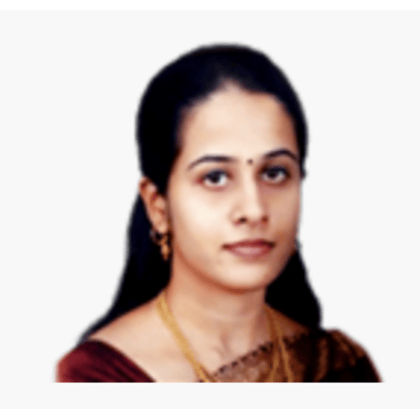Early Symptoms of Cervical Cancer Explained
Recognize the early symptoms of cervical cancer that are often subtle or mistaken for other conditions. Learn about key signs like abnormal bleeding, pelvic pain, and unusual discharge, and why early detection through awareness and screening is vital.

Written by Dr. Rohinipriyanka Pondugula
Reviewed by Dr. Shaik Abdul Kalam MD (Physician)
Last updated on 19th Aug, 2025

Cervical cancer is a serious health concern, but the good news is that early detection can significantly improve treatment outcomes. Knowing the early symptoms can help you seek medical attention promptly, increasing the chances of successful treatment.
In this article, we’ll discuss the early warning signs of cervical cancer, possible causes, and steps you can take to protect your health.
What Is Cervical Cancer?
Cervical cancer develops in the cervix, the lower part of the uterus that connects to the vagina. It is usually caused by persistent infection with high-risk types of the human papillomavirus (HPV). While HPV is common and often clears on its own, in some cases, it can lead to cervical cell changes that may turn cancerous over time.
Early Symptoms of Cervical Cancer
In its early stages, cervical cancer may not cause noticeable symptoms. However, as it progresses, the following signs may appear:
1. Abnormal Vaginal Bleeding
- Bleeding between periods
- Bleeding after menopause
- Heavier or longer menstrual periods
- Bleeding after sexual intercourse
2. Unusual Vaginal Discharge
- Watery, bloody, or foulsmelling discharge
- Discharge that may be pink or brown
3. Pelvic Pain or Discomfort
- Persistent pain in the pelvis or lower back
- Pain during sexual intercourse
4. Pain During Urination
- Burning sensation while urinating
- Frequent urination
5. Unexplained Weight Loss & Fatigue
- Sudden weight loss without diet changes
- Constant tiredness
If you experience any of these symptoms, especially if they persist for weeks, consult a doctor. Many of these signs can also be caused by noncancerous conditions, but it’s always best to get checked.
Consult Top Physician
What Causes Cervical Cancer?
The primary cause of cervical cancer is HPV infection, particularly types HPV16 and HPV18. Other risk factors include:
- Smoking – Weakens the immune system’s ability to fight HPV.
- Weak immune system – Conditions like HIV or longterm steroid use increase risk.
- Multiple pregnancies – May increase susceptibility.
- Long-term use of birth control pills – Slightly elevates risk.
- Family history – Genetics may play a role.
How to Reduce Your Risk?
Ways to reduce your risk:
1. Get the HPV Vaccine
- The HPV vaccine (Gardasil, Cervarix) protects against high-risk HPV types. It is most effective when given before becoming sexually active (recommended for ages 9-26, but adults up to 4-5 may also benefit).
2. Regular Pap Smears & HPV Tests
- Pap test (Pap smear) – Detects abnormal cervical cells before they turn cancerous.
- HPV test – Checks for high-risk HPV strains.
- Women aged 21-65 should follow their doctor’s screening recommendations.
3. Practice Safe Sex
- Using condoms reduces HPV transmission risk, though it doesn’t eliminate it entirely.
4. Quit Smoking
- Smoking increases cervical cancer risk—seek help to quit if needed.
5. Maintain a Healthy Lifestyle
- Eat a balanced diet rich in fruits and vegetables.
- Exercise regularly to boost immunity.
When to See a Doctor?
If you notice any of the early symptoms mentioned, do not ignore them. Early-stage cervical cancer is highly treatable. Schedule a consultation with a gynecologist for:
- Pap smear or HPV testing
- Pelvic exam
- Further diagnostic tests (colposcopy, biopsy) if needed
Book a Consultation Today
If you’re concerned about cervical cancer or due for a screening, you can schedule an appointment with an expert gynecologist through Apollo 24|7. Early detection saves lives—don’t delay your health checkup.
Final Thoughts
Cervical cancer is preventable and treatable, especially when caught early. By staying informed, getting vaccinated, and attending regular screenings, you can protect yourself. If you experience any unusual symptoms, seek medical advice promptly—your health is worth it.
Consult Top Physician
Consult Top Physician

Dr. Rajib Ghose
General Practitioner
25 Years • MBBS
East Midnapore
VIVEKANANDA SEBA SADAN, East Midnapore

Dr. Pankaj Dubey
General Physician/ Internal Medicine Specialist
28 Years • MBBS,Dip.Card, MRCP., FJFICM
Ahmedabad
Apollo Hospitals Gandhinagar, Ahmedabad

Dr. Afreen Banu Khan
General Physician/ Internal Medicine Specialist
8 Years • MBBS, DDM (Diab). FCC (Cardio)
Chennai
Apollo Speciality Hospitals OMR, Chennai

Dr. Ramya Hari
General Practitioner
18 Years • Medical Head & Family Physician, DG Shipping Approved Doctor, Panel Physician - UK Visa Medicals
Chennai
Apollo Medical Centre Kotturpuram, Chennai
Dr. Venkata Divakar Reddy
General Physician/ Internal Medicine Specialist
10 Years • M.B.B.S, MD (INTERNAL MEDICINE), CCEBDM, IDCCM
Nellore
Apollo Speciality Hospitals, Nellore
Consult Top Physician

Dr. Rajib Ghose
General Practitioner
25 Years • MBBS
East Midnapore
VIVEKANANDA SEBA SADAN, East Midnapore

Dr. Pankaj Dubey
General Physician/ Internal Medicine Specialist
28 Years • MBBS,Dip.Card, MRCP., FJFICM
Ahmedabad
Apollo Hospitals Gandhinagar, Ahmedabad

Dr. Afreen Banu Khan
General Physician/ Internal Medicine Specialist
8 Years • MBBS, DDM (Diab). FCC (Cardio)
Chennai
Apollo Speciality Hospitals OMR, Chennai

Dr. Ramya Hari
General Practitioner
18 Years • Medical Head & Family Physician, DG Shipping Approved Doctor, Panel Physician - UK Visa Medicals
Chennai
Apollo Medical Centre Kotturpuram, Chennai
Dr. Venkata Divakar Reddy
General Physician/ Internal Medicine Specialist
10 Years • M.B.B.S, MD (INTERNAL MEDICINE), CCEBDM, IDCCM
Nellore
Apollo Speciality Hospitals, Nellore




